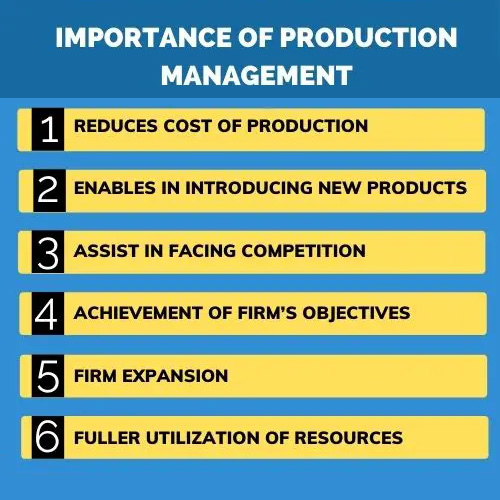Understanding the Synergy of Production and Operations Management in Digitally-Focused Industries

Table of contents
- What is Production Management?
- What is Operation Management?
- Functions of Production Management vs. Operations Management
- Example of Production Management vs. Operations Management
- Wrapping Up
- Frequently Asked Questions
- 6.1. What kind of reporting and analytics does ProHance offer in digitally driven industries?
- 6.2. Why is the integration of production and operations management important in digitally focused industries?
- 6.3. What challenges do digitally focused industries face in terms of supply chain management?
- 6.4. What are the different functions of production and operations management?
- 6.5. What are the 4 Vs of operations management?
- 6.6. What are the 5 P’s of production management?
In today’s fast-paced business landscape, success hinges on efficient and effective management of production and operations, especially in digitally-focused industries where employees are engaged in computer-based jobs.
The seamless integration of these two critical aspects can be a game-changer for any organization.
And that’s where a SaaS-based workplace analytics and operations enablement platform comes into play. In today’s blog, we’ll talk about the links and differences between production and operations management.
What is Production Management?
Before we start talking about the differences and the link between production and operations management. Let’s start by understanding what production management is?
- Production management is the art of overseeing the execution of tasks and projects.
- It involves planning, organizing, and controlling all activities related to the efficient utilization of resources while meeting project deadlines and maintaining quality.
Imagine a software development company. Production management here encompasses everything from project planning, coding, and testing to ensuring that project timelines are met while maintaining code quality.

What is Operation Management?
Operations management, on the flip side, is a broader concept that deals with the efficient management of an organization’s core processes within digitally-focused industries.
It focuses on optimizing various aspects, such as process design, supply chain management, performance monitoring, and risk management, to ensure the smooth functioning of the entire organization.
- Think of operations management as the driving force that ensures all the components in the digital business machine work seamlessly together.
- It encompasses not just project execution but all activities that contribute to the successful creation and delivery of digital products or services.

But how important is production and operations management for your business? Let’s take a look at the statistics:
- Due to the incorrect adherence to their standard deployment procedure, Microsoft Azure encountered a total of 4.46 billion hours of collective downtime.
- Within a span of three decades, Taco Bell transformed from a money-losing entity to achieve a valuation of $1.98 billion by strategically re-engineering its fundamental processes.
Implementing well-structured business process management enhances the success rate of your projects by 70%.

Functions of Production Management vs. Operations Management
Let’s delve deeper into the functions of production and operations management within digitally-focused industries to understand their differences and similarities.
Production Management Functions | Operations Management Functions |
Project Planning and SchedulingProduction management starts with thorough project planning. It involves creating project schedules, allocating resources, and ensuring that project timelines are met. | Process Design and Optimization:Operations management focuses on designing and optimizing digital processes to maximize efficiency and minimize bottlenecks. This includes streamlining workflows, eliminating process inefficiencies, and improving overall productivity. |
Resource AllocationEffective resource allocation ensures that the right skills and tools are available when needed for digital projects. This prevents overloading or underutilization of resources, optimizing costs. | Supply Chain ManagementEfficient supply chain management in digital businesses involves coordinating the flow of digital assets, data, and information. It’s about ensuring that digital products and services reach customers in the most cost-effective and timely manner. |
Quality AssuranceMaintaining high-quality deliverables is paramount in production management. Quality assurance (QA) measures are put in place to ensure that every digital product or project meets predefined quality standards. | Performance MonitoringOperations managers constantly monitor key performance indicators (KPIs) within digitally-focused industries to gauge the effectiveness of operations. This allows for real-time adjustments and improvements in project management and digital service delivery. |
Task ManagementTask management within digitally-focused industries ensures that all project-related tasks are coordinated efficiently to meet project objectives. | Risk ManagementIdentifying and mitigating risks is crucial in operations management within digitally-focused industries. This includes assessing potential disruptions in digital supply chains and developing contingency plans. |

Also Read: A Definitive Guide to Lean Management
Example of Production Management vs. Operations Management
To illustrate the difference between production and operations management within digitally-focused industries, let’s consider a software development company.
Production Management in a Software Development Company | Operations Management in a Software Development Company |
|
|
Wrapping Up
The synergy between production and operations management is pivotal for success in digitally-focused industries where employees work in computer-based jobs.
While production management focuses on the execution of digital projects, operations management takes a holistic view of the entire organization’s digital operations.
ProHance, with its workplace analytics and operations enablement capabilities, serves as a valuable tool to seamlessly integrate these functions within digitally-focused industries.
By leveraging ProHance and harnessing the power of data, digital businesses can optimize their processes, reduce costs, enhance productivity, and ultimately achieve sustainable success in today’s competitive digital landscape.
Frequently Asked Questions
Q1: What kind of reporting and analytics does ProHance offer in digitally driven industries?
ProHance provides comprehensive reporting and analytics within digitally driven industries. Organizations can access detailed reports on employee productivity, project timelines, resource utilization, and more. These insights aid in making data-driven decisions and optimizing various aspects of production and operations management.
Q2: Why is the integration of production and operations management important in digitally focused industries?
The integration of production and operations management is essential in digitally focused industries to ensure efficiency, cost-effectiveness, and competitiveness.
It allows organizations to streamline processes, allocate resources effectively, deliver high-quality digital products or services, and adapt to the fast-paced nature of the digital landscape.
Q3: What challenges do digitally focused industries face in terms of supply chain management?
Digitally focused industries often encounter challenges related to digital asset management, data security, and the timely delivery of digital products or services.
Efficient supply chain management in these industries involves optimizing the flow of digital assets and ensuring data integrity throughout the supply chain.
Q4: What are the different functions of production and operations management?
Production management focuses on functions such as project planning and scheduling, resource allocation, quality control, and task management.
Operations management, on the other hand, deals with process design and optimization, supply chain management, performance monitoring, and risk management.
Q5: What are the 4 Vs of operations management?
The 4 Vs of Operations Management are:
- Volume: Signifies the quantity of products or services produced.
- Variety: Encompasses the range of different products or services offered.
- Variability: Addresses the level of unpredictability or fluctuations in demand.
- Visibility: Relates to the level of transparency and control in the production process.
Q6: What are the 5 P’s of production management?
The 5 P’s of Production Management are:
- People: Managing the workforce and their skills.
- Plant: Optimizing the use of facilities and equipment.
- Processes: Developing efficient production processes.
- Programs: Planning production schedules and resources.
- Performance: Monitoring and improving production performance.



